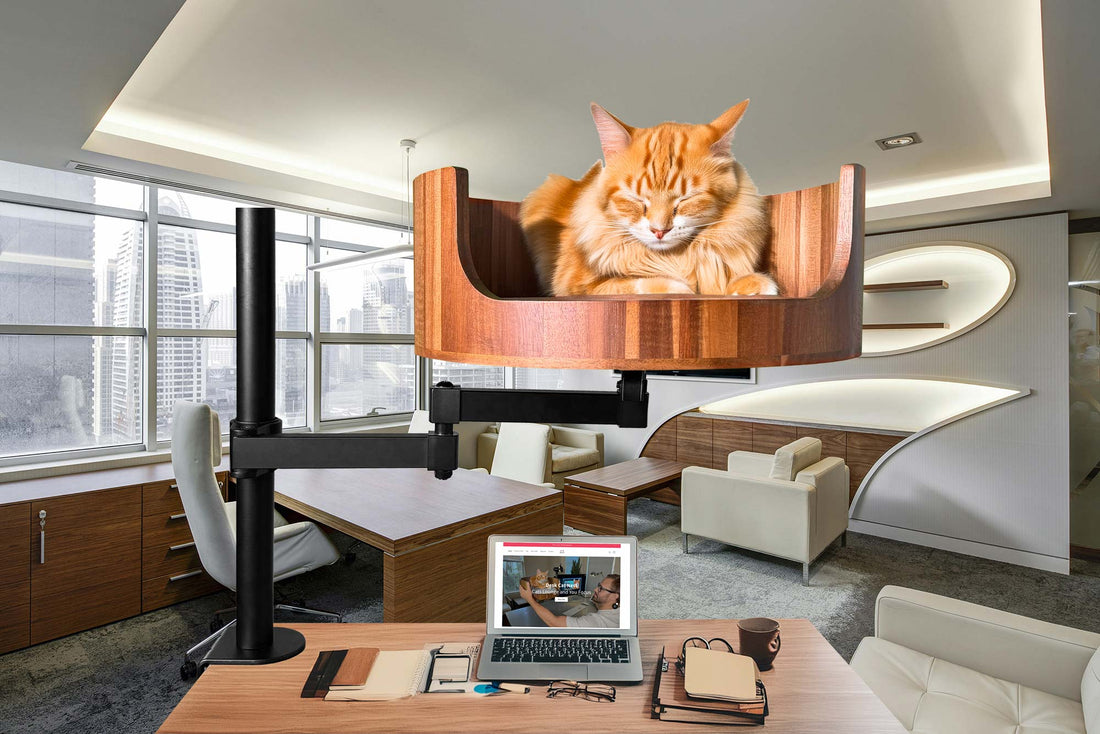
Why Do My Cat Snore: Understanding Feline Snoring Sounds
Share
Have you ever noticed your furry feline companion snoring away as they nap peacefully on your desk? While it may seem cute and endearing, you may find yourself wondering why your cat snores in the first place. Feline snoring sounds can be quite common, and understanding the reasons behind it can help ensure your cat's health and well-being.
In this article, we will delve into the various factors that can cause your cat to snore, including anatomical features, allergies, and respiratory issues. We will explore how a cat's unique airway structure can contribute to snoring sounds, as well as how environmental factors such as dust or pollen can trigger allergic reactions that lead to snoring. Additionally, we will discuss when snoring may indicate a more serious underlying health issue that requires veterinary attention. By gaining a better understanding of why your cat snores, you can take proactive steps to help your beloved pet rest comfortably and peacefully.
1. Snoring in cats can be caused by various factors, including anatomical abnormalities, obesity, respiratory infections, or allergies.
2. It is important to monitor your cat's snoring patterns and seek veterinary advice if it becomes frequent or concerning.
3. Regular grooming and cleaning of your cat's bedding can help reduce allergens that may contribute to snoring.
4. Providing a comfortable and stress-free sleeping environment for your cat can also help alleviate snoring.
5. Ultimately, understanding the reasons behind your cat's snoring can lead to better overall health and well-being for your furry companion.
What Causes Feline Snoring?
There are several reasons why cats snore, and understanding the causes can help you determine if there is an underlying issue that needs to be addressed. One common cause of cat snoring is a blockage in the upper respiratory tract, which can be caused by nasal congestion, allergies, or obstructions such as polyps or foreign bodies. Obesity can also contribute to snoring in cats, as excess weight can put pressure on the airways and make it difficult for your cat to breathe properly. Other factors that may lead to snoring in cats include respiratory infections, dental issues, or even certain anatomical features such as a flat face or elongated soft palate.
When Should I Be Concerned?
While snoring in cats is generally not a cause for concern, there are certain situations where you should seek veterinary attention. If your cat suddenly starts snoring loudly or consistently, it may be a sign of an underlying health issue that needs to be addressed. Additionally, if your cat shows other symptoms such as difficulty breathing, nasal discharge, or changes in behavior or appetite, it is important to consult with your veterinarian to rule out any serious conditions. In some cases, snoring in cats can be a symptom of a more serious problem such as a respiratory infection or dental disease that requires treatment.
How Can I Help My Snoring Cat?
If your cat is snoring occasionally and is otherwise healthy, there are a few things you can do to help alleviate the snoring. Keeping your cat at a healthy weight through proper diet and exercise can help reduce snoring caused by obesity. Ensuring proper dental care for your cat can also help prevent snoring related to dental issues. If your cat has allergies, keeping the environment clean and minimizing exposure to allergens can help reduce snoring. In some cases, using a humidifier or air purifier in the home can help alleviate snoring caused by nasal congestion. However, it is always best to consult with your veterinarian before trying any at-home remedies to address your cat's snoring.
Desk Cat Nest FAQ
Why does my cat snore?
Just like humans, cats can snore for various reasons. Common causes of snoring in cats include obesity, allergies, respiratory issues, and sleeping position. If your cat's snoring is consistently loud or bothersome, it's best to consult with a veterinarian to rule out any underlying health issues.
Can a Desk Cat Nest help with my cat's snoring?
The Desk Cat Nest is designed to provide a comfortable and cozy sleeping space for your cat. While it may not directly address the underlying causes of snoring, the elevated and enclosed design of the nest can help create a peaceful and quiet sleeping environment that may reduce snoring episodes.
How should I introduce my cat to the Desk Cat Nest?
It's important to gradually introduce your cat to the Desk Cat Nest to ensure they feel comfortable and secure. Place the nest in a quiet and familiar location, add your cat's favorite blanket or toy inside, and encourage them to explore and use it at their own pace. Positive reinforcement, such as treats or praise, can also help create a positive association with the nest.
Is the Desk Cat Nest easy to clean?
Yes, the Desk Cat Nest is designed for easy cleaning. The removable cushion and washable cover make it simple to keep the nest clean and fresh for your cat. Regular cleaning and maintenance will help ensure your cat's comfort and hygiene.
In conclusion, if you are wondering why your cat snores, investing in a Desk Cat Bed can greatly improve your feline friend's sleeping habits. This cozy and comfortable bed is specifically designed to provide proper support and alignment for cats, reducing the likelihood of snoring. With its plush surface and compact size, the Desk Cat Bed offers a convenient and stylish solution for your pet to rest peacefully throughout the night. Say goodbye to noisy snores and hello to a well-rested kitty with the Desk Cat Bed.



















































